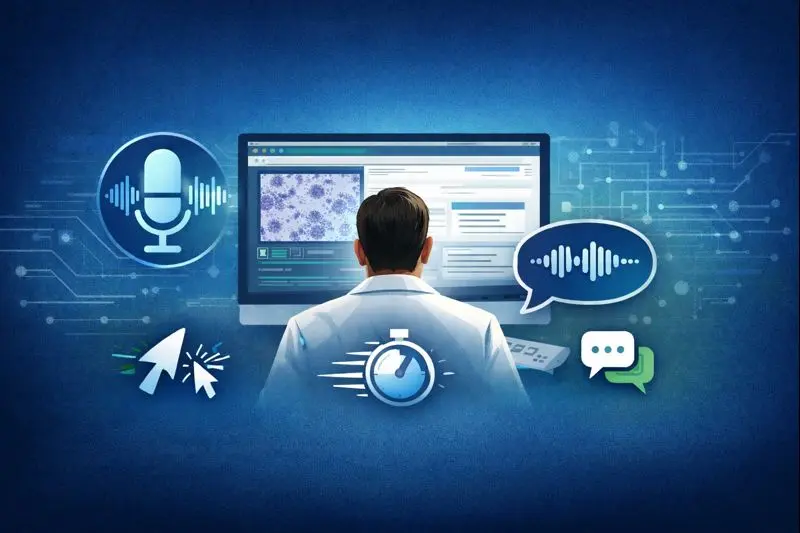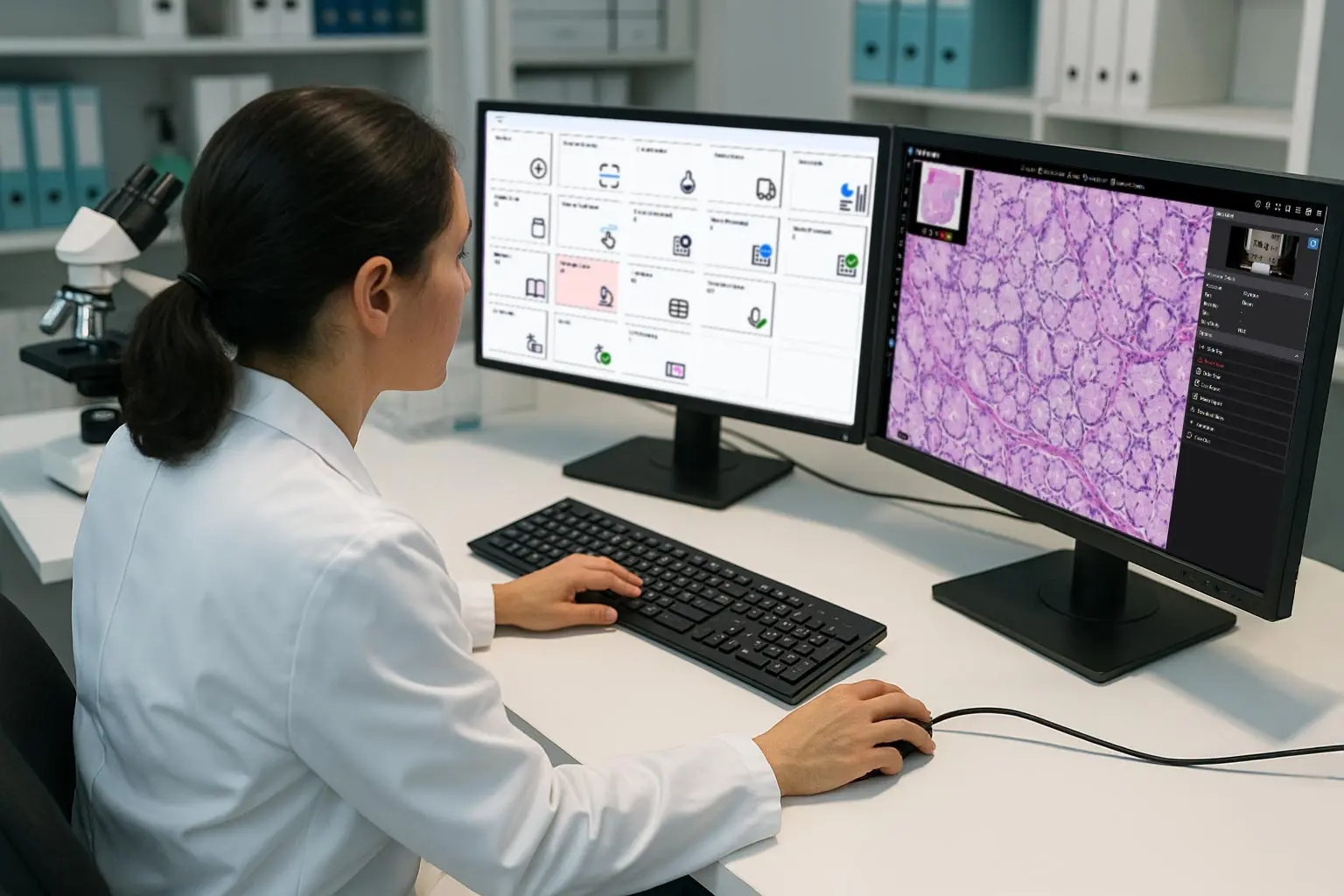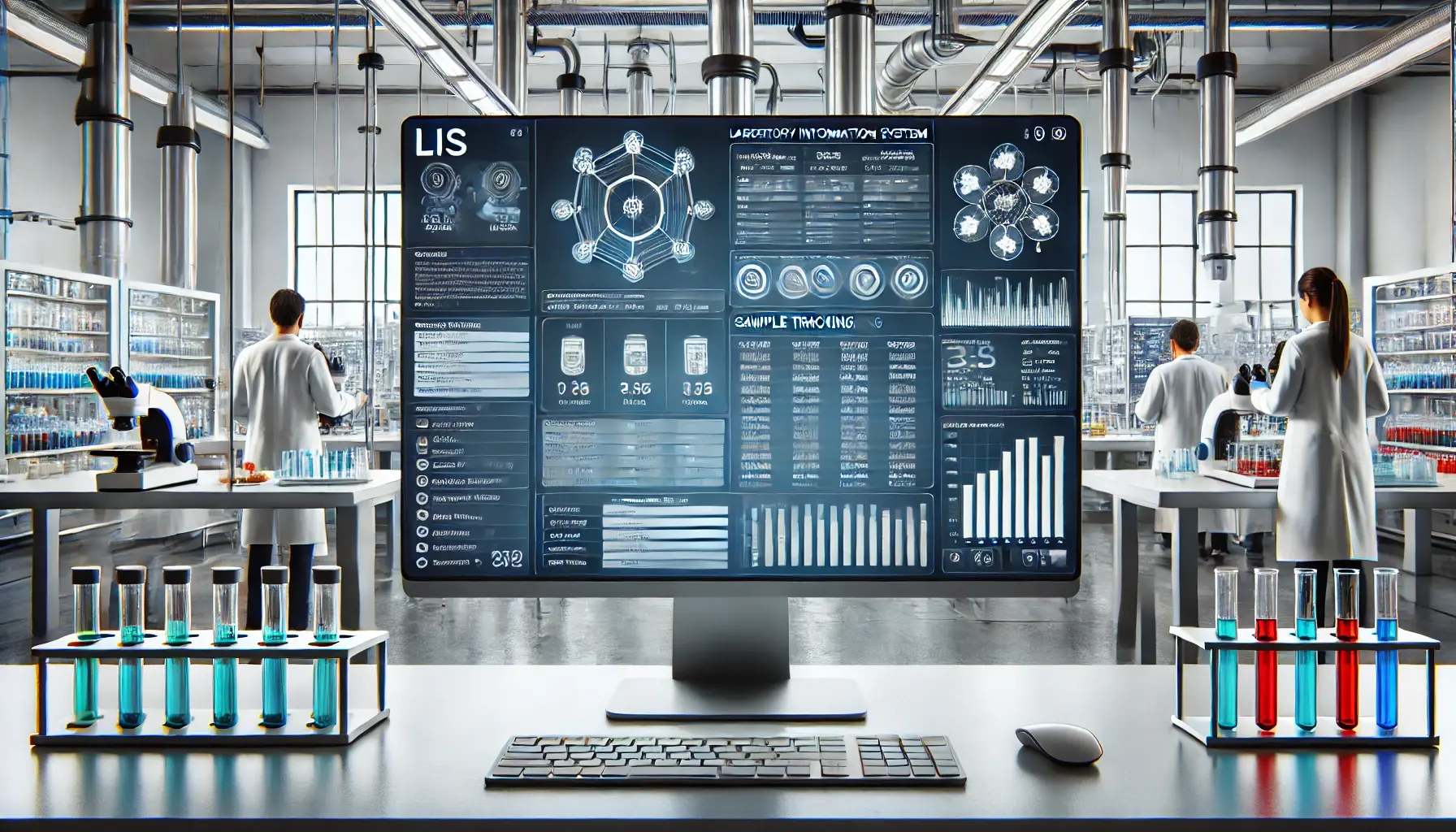Blog
Pathology Software and Laboratory Information Technology
October 31, 2025
A few months back, we produced a blog post highlighting key questions all pathology practices and clinical labs should ask when evaluating pathology lab software and laboratory information systems (LIS medical systems). The questions in that blog primarily focused on the support offered by laboratory information system companies.
Here’s a link to the blog with FAQs for LIS software vendors.
Today, our focus will be on key questions that need to be addressed when evaluating pathology software, but this time, the area of emphasis will be information technology.
Learn More: LIS System Benefits for IT Directors
The Use of Information Technology in the Medical Lab
Medical labs use information technology to enhance operations and improve how patients get tested, diagnosed, and treated, and as information technology advances, the impact will continue to grow.
Laboratory information system software (LIS software) is an excellent example of IT applied within the laboratory setting.
A medical laboratory information system is the centerpiece of effective laboratory workflow management for modern lab operations. It supports lab processes and tracking specimens while aiding in lab data management and reporting, quality control, and compliance with regulatory requirements.
Learn More: Best Pathology Lab Reporting Software - 2025 Buyers Guide and Checklist
Pathology Software Deployment & Lab Information System Architecture
When evaluating medical LIS, it’s important to understand that they aren’t all alike.
The best LIS software platforms differ significantly from legacy medical LIS systems, offering the advanced flexibility and functionality that lab directors and managers need to stay competitive in today’s increasingly complex and demanding environment.
Learn More: Comparing LigoLab Informatics Platform with Legacy Laboratory Information System Software
The best LIS pathology solutions can be deployed to fit any medical lab’s organizational goals and priorities. For example, laboratory information systems like the LigoLab Informatics Platform can be deployed on-premises or in the Cloud, and run anywhere without VPN connections or terminal servers.
The best laboratory information system software is engineered with an agnostic backend, which allows LIS software vendors to accommodate installations of any scale on any operating system while fulfilling the lab client’s specific requirements for a particular installation.
Learn More: Is Your Laboratory Information System and Lab Vendor Holding Your Laboratory Hostage?

Pathology Lab Reporting Software & Information Technology FAQs
Now, take a moment to review the IT FAQs listed below and then confirm with the laboratory information system companies you’re speaking with that their LIS system software has the desired functionality.
If the LIS company responds “Yes” to all the listed FAQs, you and your lab colleagues can rest assured knowing the LIS model under review is modern and full of advanced features.
- Does the LIS system operate with a traditional client-server architecture, with the pathology software installed on each machine that needs to access the system?
- Does the medical LIS operate with a web-based interface, and can it be hosted on a server and accessed via a web browser?
- Does the LIS software contain a single, centralized database that supports multiple sites and departments?
- Does the LIS system's database conform to the Open Database Connectivity Standard (ODBC)?
- Is the LIS software designed to accommodate upgrades to the back-end database that don’t require extensive reconfiguration?
- Is the LIS system negatively impacted when used by multiple users?
- Does the medical LIS apply security features to all system files?
- Does the LIS system apply log-in security to all servers and all workstations using the pathology lab software?
- Does the LIS medical system provide a mechanism for workstation and server authentication?
- Does the LIS system apply Secure Socket Layer (SSL) encryption on the web client interface?
- Does the lab information system encrypt client passwords in a database to support multi-case scenarios and special characters?
- Does the LIS system use TCP/IP as its network transport?
- Does the medical LIS have data archiving functionality, including a configurable scheduled archive, for all contained data, without requiring an offline mode or human interaction to complete the task?
- Does the lab information system have automated backup and restore capability without support intervention and manual backups?
- Does the LIS system maintain the transactional history of all lab information system administrators?
- Does the LIS system include an analyst communication log that administrators can easily access?
Learn More: How LigoLab is Shaping the Future of Clinical Labs & Pathology Groups
The next four FAQs cover inquiries about the lab information system and hardware and software environments.
Hardware Environment
- Is the laboratory information system compatible with a variety of hardware environments?
- Can the healthcare LIS system be utilized with a touchscreen?
Editor’s Note: Here’s an example of how a touchscreen can be utilized with LigoLab Informatics Platform - LigoLab’s Grossing Workstation Window
Software Environment
- Is the lab information system compatible with various other pathology software environments?
- Does the LIS system utilize a non-proprietary database like Oracle or Microsoft SQL Server?
Editor’s Note: Most LigoLab Informatics Platform deployments are on a Microsoft SQL server. LigoLab provides read-only access to the database upon request.
For more information about LigoLab platform requirements and other technical specifications, please refer to LigoLab’s Prospects FAQs.

Pathology LIS Systems: a Mission-Critical Decision
Recent laboratory surveys have shown that most users are unsatisfied with their current pathology LIS systems, thanks to a lack of functionality, inefficient manual lab workflow, and barriers between disparate pathology lab software systems.
In most cases, these are examples of LIS systems that, years ago, fit the bill but are now considered legacy pathology software solutions because they haven’t kept pace with advances in LIS software technology.
A rigid and outdated LIS laboratory information system can’t provide the performance, reliability, and scalability needed to excel in the modern medical lab.
Fortunately, there are modern alternatives, and the best LIS software can now unite all diagnostic disciplines, departments, roles, processes (including laboratory billing/lab revenue cycle management), and specimens on one powerful end-to-end lab informatics platform that covers all technical and financial operations.
Learn More: Reduce Denials and Stop Revenue Leakage With Integrated Laboratory Billing Management
All lab directors and managers know that selecting the best LIS system for them is a mission-critical decision.
Choosing the wrong LIS software can hinder a lab’s ability to scale efficiently. Thus, lab managers must ask the right questions and thoroughly review all available resources when making this critical decision.
Learn More: How to Set Up a Committee to Select a Laboratory Information System
With that in mind, LigoLab has a helpful Resource Hub that includes White Papers, Case Studies, Webinars, Testimonial Videos, and Product Overview Videos.
Plus, here’s a great resource from Clinical Lab Products magazine that focuses on the 7 Best Practices for a Successful LIMS/LIS Implementation.
LigoLab’s All-in-One Pathology Lab Management Solution
The LigoLab Informatics Platform offers unlimited flexibility in setup, with over 1,000 configurable entities that support the user’s ability to quickly introduce new tests, results, reports, and fields.
Platform features include integrated medical LIS and lab RCM modules that eliminate data silos, a custom scripting language, a flagging subsystem, plus rule, automation, and interface engines.
Say goodbye to your inefficient pathology lab management solution and hello to advanced LIS software with increased productivity and net collections.
To learn more about LigoLab’s future-ready LIS system and laboratory billing solutions, fill out our brief contact form and request a consultation with a LigoLab Product Specialist.
Learn More: Navigating the Future of Pathology: The LigoLab Advantage







